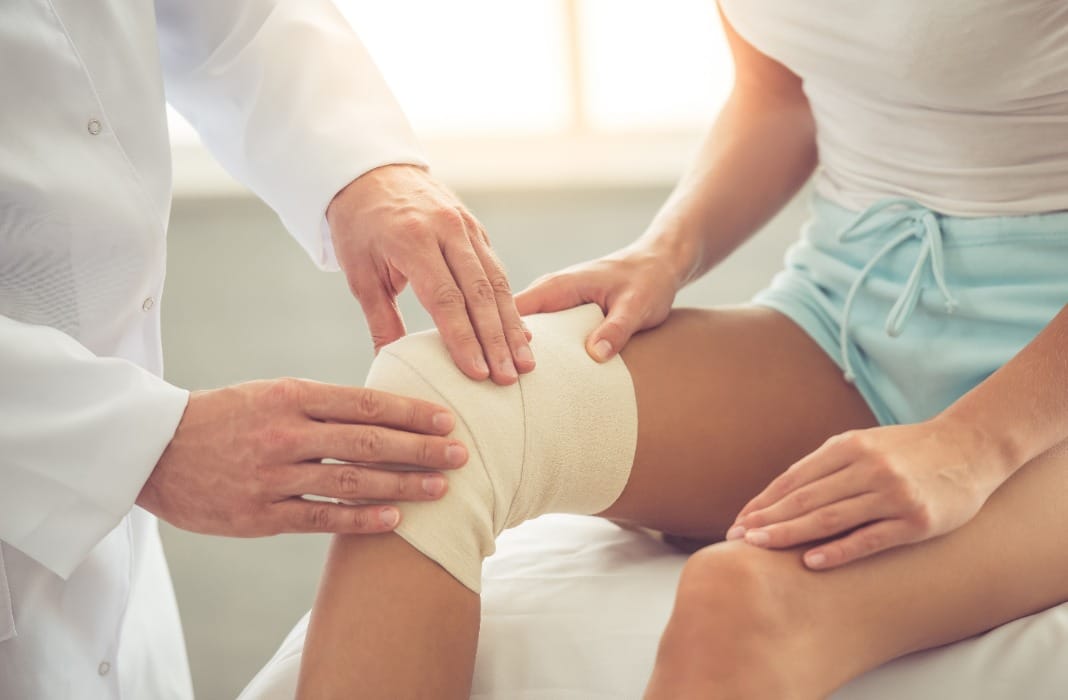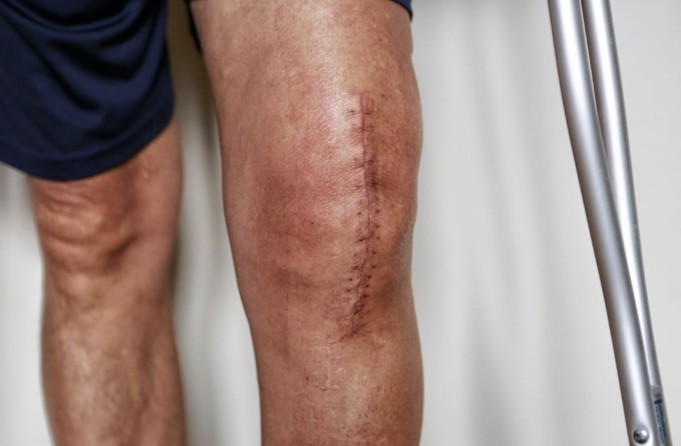Your knee is one of the most important joints in your body because it acts as a hinge for your foot and lower leg to swing easily whenever you kick, run, or walk. A healthy knee allows about 150 degrees of moving.
The condition of your knees can affect your mobility and productivity—the healthier your knees are, the more tasks you can do during the day.
It’ll be very challenging for you to make the most out of your life if your knees are always in pain, ache whenever you exercise, or stiffen up when sitting in a movie theater or a car.
How can you enjoy these activities if your knees always get in the way? Do you think you can continue to remain active and have the confidence to socialize with other people if this is the case?
If you notice that you’re no longer as mobile as you’d like to be because of your knees, consider getting knee surgery.
What Is A Knee Surgery?
Knee surgery involves the resurfacing of the knee that has been severely damaged because of arthritis. The ends of the bones found in your knee joints and kneecaps will be joined using several plastic and metal parts.
The surgeon will remove any damaged bones and cartilage from your knees and attach metal implants, so they continue to function as they should.
This surgery only takes about one to two hours, but can provide long-lasting pain relief. Some insurance plans cover knee surgery, making it a very affordable and accessible option for almost anyone.
How Do You Take Care Of Your Body After A Knee Surgery?
Getting knee surgery can positively impact your life in many ways, but only if you properly take care of your body after the operation.
Getting back to your daily routine right after a knee surgery can only do more harm than good, and can become the reason why your knees will get injured. When this happens, all of the time and money you spent on getting a knee surgery will be useless.
Make sure that your knee surgery will only bring positive things to your life by spending time to take care of your body after the surgery.

Here’s how you can do it:
1. Pay Attention To Your Activities
A knee surgery might seem like a fast and simple process, but this doesn’t mean that you should immediately continue your routine the moment you return home from the hospital.
As mentioned, putting too much strain on your body after a knee surgery can delay your recovery and cause injuries.
One way of taking care of your body after a knee surgery is to pay attention to your activities. Regardless of how ready you think you are, if your knee hasn’t fully healed, it’s best if you take things slowly and take heed to the following:
- Rest when you’re tired, and don’t force yourself to carry on with your daily activities. If you don’t have the energy to accomplish certain tasks, take a nap, but don’t stay in bed all day as this will only weaken your knee even more.
- If exercising had been part of your routine before your knee surgery, make sure that you talk to your doctor before doing any workout after the surgery. The exercise your doctor will recommend to you will depend on whether your new knee is uncemented or cemented.
- Avoid sitting down for more than one hour at a time. If your activities will require you to sit for long periods, take breaks by getting up by propping up your leg with a footstool. Such a strategy can prevent your knee from swelling.
- Ask for your doctor’s recommendations on when you can drive and have sex again. Ideally, you can start returning to your daily routine six weeks after the knee surgery.
- Never lift anything that weighs five kilograms. If you should lift anything heavy around the house, have other people do it for you.
2. Don’t Forget About Your Diet
The foods you consume after your knee surgery can affect your ability to recover and move again. Sticking to a well-balanced diet can provide essential vitamins and minerals to your body, making it very easy for you to recover from knee surgery.
A poor diet, on the other hand, will make your body weak and slow down your recovery.
Once you leave the hospital after your knee surgery, make sure to follow these tips when managing your diet:
- You can continue with your normal diet once you leave the hospital. However, if your stomach is upset by this time, stick to low-fat and bland foods, such as broiled chicken, rice, yogurt, and toast. Your doctor might also suggest vitamin and iron supplements after the surgery, so make sure to follow their orders.
- Increase your fluid intake every day, unless your doctor tells you not to. Ideally, your diet after your knee surgery should include drinking more water and fresh fruit juices.
- Strive to eat a variety of healthy foods, but watch your portion sizes. Work on maintaining your ideal weight as gaining pounds after the knee surgery can put more stress on your new knee.
- Irregular or changes in bowel movements are common after a knee surgery. You can relieve the pain or discomfort by taking fiber supplements every day or asking permission from your doctor if you can take a mild laxative.
3. Be Careful When Taking Medicines
Some people depend on different kinds of medicines in order to stay healthy. Some people might take supplements every single day to boost their immune systems, while others rely on medicines to meet their nutritional requirements. The latter is especially true for adults and seniors.
Regardless of the purpose why you’re taking certain medicines, it’s important to ask your doctor about it after your knee surgery. Consuming the wrong types of medicines or taking them too early after your knee surgery can have adverse effects on your health and safety.
Make sure to consider the following when taking medicines after your knee surgery:
- After your knee surgery, inquire from the doctor whether you can restart taking your medicines. Don’t forget to ask for additional instructions once your doctor orders you to take new medicines after the surgery. Ask as many questions about medicines so you can properly set your expectations and assess which side effects are common or not.
- It’s common for doctors to give blood-thinning medicines to people who’ve undergone a knee surgery. These medicines are essential to prevent blood clots on your knees and encourage proper blood flood throughout your body. Once your doctor recommends a blood-thinning medicine, inquire how you should take the medicine and how often. Taking excessive amounts of this medicine can result in serious bleeding, and can put your life on the line.
- When it comes to pain medicines, only take them as prescribed by your doctor. If you notice that their prescriptions don’t provide any results, call them and never self-medicate. When taking pain medicines, make sure to do it thirty minutes before you exercise.
4. Spend Some Time For Your Incision Care
The surgery will leave a scar on your knee that you’ll need to clean regularly. Caring for your cut or incision is vital to keep the affected area clean, prevent it from getting infected and expedite your body’s ability to heal.
Your knee will recover faster if the cut is regularly and properly cleaned. Here’s how you can care for your incision from the knee surgery:
- If your doctor left strips of tapes on the cut on your knee, leave them on for a week or until they fall off. It’s common for the area to get itchy at times, but regardless of how tempting it can be, make sure that you don’t touch or remove them.
- When your doctor left staples or stitches on your knee, ask when you should see your doctor again to have these removed. Never remove the staples or stitches on your own because aside from being painful, improper removal of staples or stitches from your knee can result in bleeding and infection.
- If your doctor used adhesives, wait until they fall off on their own and never remove them by yourself.
- Change the bandage on your knee every day and wash the area daily using warm water. Contrary to popular belief, you should never use alcohol or hydrogen peroxide as these can only delay the healing process.
- If you notice that your knee area oozes fluids, cover it with a gauze bandage after washing. Make sure that the incision is dry before covering it with gauze to prevent infection.
It’ll Be Worth It
As long as done by licensed professionals, a knee surgery can become your ticket to becoming active and mobile again. However, before you can experience the benefits of the surgery, it’s important to give your body time to heal and recover.
This might require you to slow down, but if it’s for the wellness of your knee, you should be willing to make this little sacrifice!












